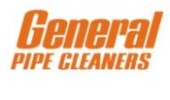
HRAI GTA chapter serves up smorgasbord of industry info
April 30, 2014 | By Patrick Callan
A new Technical Standards & Safety Authority (TSSA) ombuds office, Toronto Hydro’s heating and cooling incentive program and Canada’s Anti-Spam Legislation (CASL) were hot topics at the Heating, Refrigeration and Air Conditioning Institute of Canada’s (HRAI) GTA chapter meeting on April 29. The meeting at Fontana Gardens in Vaughan, ON, featured three guest speakers and a contingent of HRAI GTA chapter members.
The first speaker, Sandra Cooke, who has held management positions at TSSA and been actively involved in regulatory issues over the past 15 years, explained her role in overseeing the newly created TSSA ombuds office. It will be independent, neutral, impartial, informal and confidential from TSSA. She guaranteed that anyone who wishes to file a grievance or complaint can do so without any fear of retaliation. “The most important thing is that the office is confidential,” she said. “The only exception is for safety reasons.”
Cooke will practice “shuttle diplomacy,” acting as an intermediary to relay messages for complainants who do not want to deal with someone directly. She will also layout the options for complainants and help them navigate TSSA’s formal process. “My job is to help facilitate the issue and bring it forward,” she said, adding that if the same issues repeatedly come up, she can report them as a trend to TSSA.
Following Cooke, Maja Boric, who does marketing and communications for Toronto Hydro, rolled out the cooling and incentive plan. Customers can receive up to $650 in incentives by upgrading to high-efficiency units: $250 for replacing an old furnace for one with an electronically commutated motor; $250 for replacing an old central air conditioner (CAC) with an ENERGY STAR qualified system (minimum 14.5 SEER and 12 EER); and $400 for replacing an old CAC with a standalone CEE “Tier 2” level central air conditioning system (minimum 15 SEER and 12.5 EER).
“The idea that the program is available for new installations is fantastic,” commented Victor Hyman, McKeough Supply’s profit centre supervisor PC 320, who presided over his first meeting as chairman of HRAI’s GTA chapter.
The evening’s final speaker, Claudiu Popa, risk advisor for Informatica Security and Privacy, revisited a topic from a recent HRAI GTA chapter meeting that sparked much discussion and some confusion – Canada’s Anti-Spam Legislation (CASL).
Effective July 1, businesses must have expressed or implied consent to send commercial electronic messages, they must also clearly identify themselves and there must be an unsubscribe option for those receiving the message. The CRTC, Competition Bureau and the Office of the Privacy Commissioner of Canada will enforce CASL, which threatens a $10 million fine for non-compliance. Businesses have three years to become compliant.
Many attendees questioned how much impact CASL will have given many of these sorts of e-mails come from overseas or offshore servers. “The whole point of CASL is to scare people into being compliant,” said Popa, noting the biggest repercussion will likely be a damaged reputation since you will be held responsible for any communications that come from your system – even if those systems become compromised. “The issues around CASL are of a brand nature.” (For more information on CASL, check out Mark Evans’ indepth column in HPAC’s March 2014 issue.)
The next HRAI GTA chapter meeting will take place on May 27, once again at Fontana Gardens in Vaughan, ON. Guest speakers will be Alan Beech from Aeroseal Canada and Andrew Oding of Building Knowledge Canada. For more information, e-mail Kim Stark: k.stark@industrialadmin.ca.




